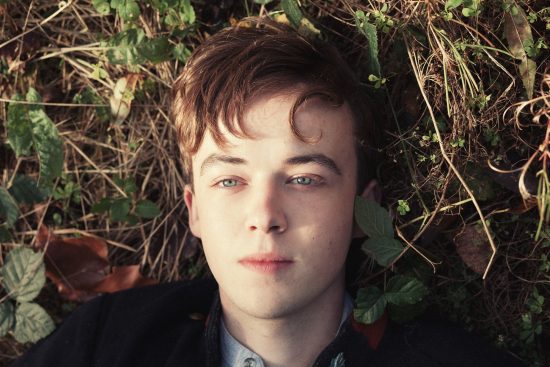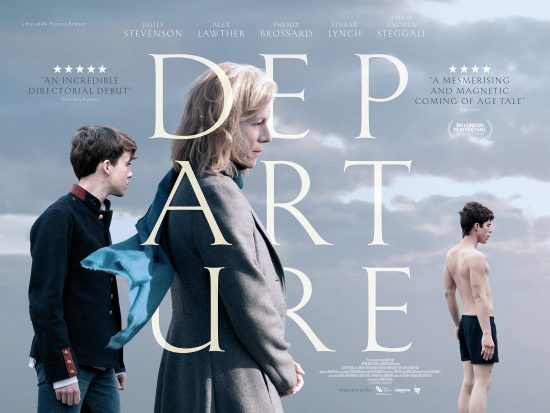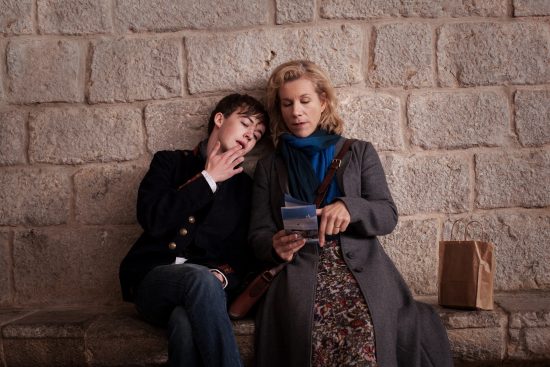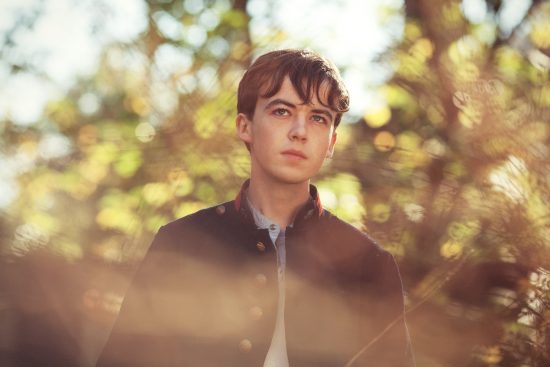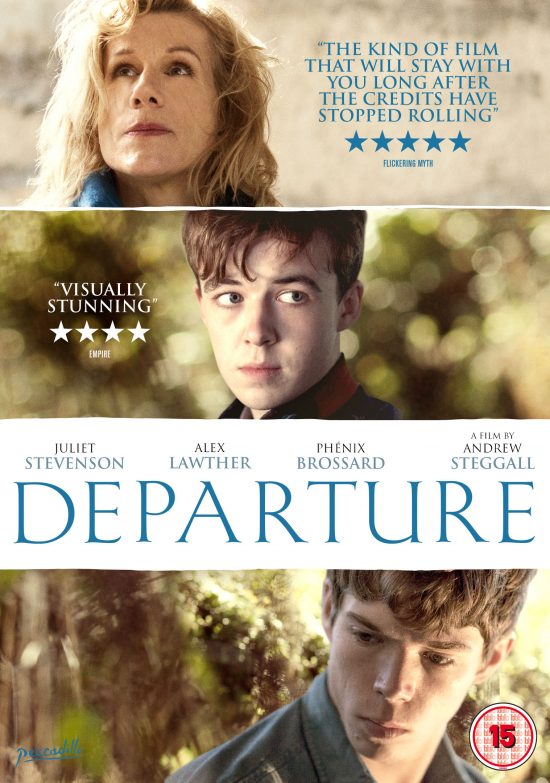Alex Lawther talks to Live for Films about Departure
It almost feels kind of reductive to call young British thespian Alex Lawther a rising star. When you start off your career in a David Hare play at 16 and your screen debut is in Oscar-winning period drama The Imitation Game as the young version of Benedict Cumberbatch’s Alan Turing, you’re ahead of the game.
The London Film Critics’ Circle immediately recognised Lawther’s qualities and laureled him Young British Performer Of The Year in 2015 for that breakthrough role whilst even navigated and illustrious piers like Dame Maggie Smith have spent words of praise for the 21 years old Hampshire native.
We recently had the pleasure of chatting with the young thespian over the phone upon the home entertainment release of his latest film, Departure, British filmmaker Andrew Steggall’s powerful feature debut which premiered at last year’s BFI London Film Festival and was released theatrically back in May.
In this emotionally nuanced family drama, Lawther, in his first lead role, plays Elliot, an introverted teenager with artistic aspirations who accompanies his mother to the South of France to pack things up and get their countryside home ready for sale, due to his parents’ imminent divorce. With his family crumbling before his eyes, Elliot finds solace in his lonely wanders through the French countryside and one day he meets Clement, a French boy who forever changes his perception of life as he knew it up until then.
“When I first read the script, – observes Lawther – one of the things that drew me to it was the fact that it was a young person’s story about falling in love for the first time, but it also followed the life of his mother who’s going through the end of her life-long love story. The relationship between them was central. If anything, for me the film was less about a young boy and more about the two of them together.”
Beatrice, Elliot’s mother, is masterfully portrayed by British legend Juliette Stevenson, and the mother-son relationship is indeed essential to Departure‘s thematic thread even more so than Elliot’s self discovery and coming of age.
Director Andrew Steggall has drawn a lot from his personal experiences whilst writing the script but the filmmaker apparently didn’t talk too much about his personal life with his lead actor.
“I know the story is close to him and Elliot especially, but I think that comes out already from his writing and the subtlety of it because it’s the sort of writing that’s so precise. What’s so beautiful about Andrew’s script is that it’s full of people not really saying anything to each other, avoiding things and tiptoeing around issues.”
Steggall cast Lawther a year before they started shooting and all the time in between was very useful to the young performer in order to get an intellectual understanding of what was going on beneath the surface of the story: “I delved deep into my character’s creative life – what books he was reading, what films he was watching – and having the time for that to sit in my head and infiltrate my understanding of Elliot was priceless.”
The actor loved working with Steggall noting how the director is incredibly precise with every piece of action as well as with his writing: “We’re talking about 20-21 days of shooting with a fast turnover and it was really to Andrew’s credit that he knew what he was looking for and also he trusted us enough that he could organise scenes and then let us get on with it and do our own thing. There was a good balance between structure and playfulness.”
Departure is an emotional rollercoaster that genuinely portrays a disparate variety of human feelings and the intensity of some scenes required a level of intimacy that has to feel authentic and natural in order to work. Despite his young age, Lawther is clearly a consummated professional who speaks eloquently about his work and has a deep and mature understanding of the art of storytelling in all its various forms.
“It’s interesting to approach scenes of intimacy, as long as it’s a safe environment and everyone is on the same page and with the right intentions because in the end they’re like every other scene. Sally Hawkins, who’s been my mentor in an acting scheme for the past year, says that every scene in a film should have an amount of intimacy and should be charged with that sort of wanting to connect with someone. I thought it was very true, therefore I try to approach scenes of intimacy that way but also moments where something terrible happens to a character or something wonderful or any other sort of extreme. I suppose you can’t be risking to worry too much about it and should just sort of explore and enjoy the process.”
Despite the critical acclaim and high profile gigs, Lawther has simply continued to do his job, choosing quality over quantity, honing his craft between film and TV without ever abandoning his beloved stage.
“I think we’re so lucky to have such a thriving culture of theatre, particularly in London but also on a regional level and that’s where I started. I love theatre and I think one of the most joyful things it gives you is the opportunity as an actor to have a true sense of community and ensemble that sometimes with film is hard to have when people just go off to their trailers. There’s a real team spirit in theatre, which is a joy to be part of and it also means there’s less of a sense of hierarchy. I suppose when you start working on screen that fills you with a sense of confidence so that you can talk to people and have a language to communicate with. But because I did start in theatre I don’t know any other way to work, I have nothing to compare it to. I feel very blessed I get to work in theatre and film and I hope that will continue. There are times when you go to Los Angeles and it’s lovely to being able to talk to people there about the theatre back home because the LA scene is tiny in comparison. I think there’s particularly a British sense of pride with that.”
Although his career has just started Lawther has already managed to prove his commitment to every role, no matter how small. His skills, passion, dedication and humble approach to his craft are awe-inspiring. When questioned about his process he underlines how the most important thing for him is working with people who enjoy what they do.
“Sometimes making a film can sort of be portrayed as a harrowing, isolating, painful experience but I find it easy to work, regardless what the subject matter is. There’s a sense of buoyancy and a sense of fun. Recently I did an episode of Black Mirror, which was really dark and twisted but I still managed to retain a sense of playfulness. I mean, in the end we’re just pretending to be other people and it’s fun so we’re bloody lucky to be able to be part of that.”
Departure is out now on DVD/VOD/HD in the UK.

